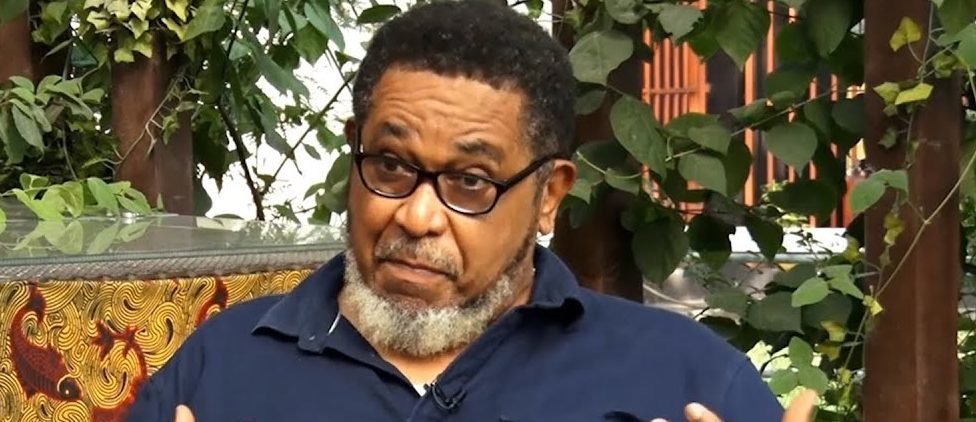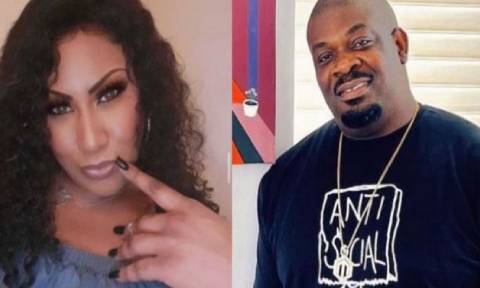How and when did you find yourself in the film industry?
I ventured into filmmaking some 12 years ago. Then I was running an Islammiyyah school at Yakassai while awaiting my secondary school result. I started contemplating acting when I accidentally watched a scene in one of the reigning Hausa films then. I came across it while chasing my younger ones to join the Qur’anic session going on one evening. When I made up my mind, I decided to join an association of filmmakers, called Tauraruwa. They carried out a sort of rehearsals and training for film actors but being that I was so engrossed in the Islammiyyah activities; I never had the opportunity of participating during most of the rehearsals. Things unfolded naturally and I one day met Auwalu Mohammed Sabo and he told me he was going to send me an invitation to feature in one of their films. When the invitation finally came, I was invited to play a leading role with the name Kabir and I did, the film was titled, “Zarge”, it marked the beginning of my fortune in the industry.
A lot of people have negative perceptions of filmmakers, considering your status as an Islamiyyah teacher, how do you manage that?
I will say I am managing that very well and being in the industry, I can tell you, has not in any way affected my image as an Islammiyyah school teacher. I believe in destiny and therefore, being what I am, I think it is fate to which I have no regrets whatsoever. It is natural that one sometimes shies away from what might be the best for him, seeing the industry and judging it on assumption, I think is not the best. Take for instance, some decades back, a typical female northerner hardly studies courses like Engineering and Medicine but being that the world is changing, you find many of our sisters going into areas that were initially considered not fit for northern girls. So also it is with media issues, if we don’t put heads together to showcase to the world the Hausa culture, which is of cause synonymous with the Islamic way of life, the mores of the Hausa man will, in years to come, vanish owing to the pace at which media and cultural imperialism of this globalised age are moving. And on the issue of the negative image of filmmakers, I can argue it is wrong of people to judge everyone in the industry as bad. It is obvious that just like in any other setting, there are bad ones and at the same time good ones. Being in the film industry does not mean that I am bad or act contrary to being an Islamic teacher. Also take for instance, the issue of politics, now more religious scholars are venturing into it and that way, I think lots of wrongs could be corrected. Therefore, it is same with the film industry. In fact, I feel the industry has reshaped my life because being popular, there are some things I can’t afford to do because the attention of the world will focus on Nura, the film star. A lot of things happen to me from which I realized I am no longer a lay person and therefore I am being very careful every step I take. I have learnt to respect and appreciate people the more and also work patiently with everyone. On the whole, I think joining the film industry is one of the best things that happened to me all my life.
Now that you are so engrossed in films, what has happened to the Islamiyyah?
My school, Al-ansar Islammiyyah is still there and doing very well. Even before joining the film industry, what I did was I engaged more people to help me run the school as the number of students increased. Therefore, it is still moving even though I do less of the Islammiyyah activities as I carry about my film roles and other businesses but interestingly, a lot of people have enrolled their children in the school because of my popularity. The Islammiyyah school is a legacy I am very proud of.
As an Islammiyyah school teacher, in what ways do you think Hausa films impact on the societal moral values?
Take for instance, the Islamic film, “The Massage”, it served as a practical aspect of the theoretical history we were thought in school. Ordinarily, one can imagine the history but because it was filmed, we have a better understanding of it. Secondly, if we look at the early Hausa drama artistes like Mustapha Dan Hakki, Kasimu Yero and the rest of them, we can see how they contributed to societal values. And since the world is dynamic, modernity has come with lots of innovations; we have to be part of the trend. I am not saying there are no wrongs done in the films but issues should be looked at holistically, let us appreciate the kind of employment opportunities the film industry has brought and let us also appreciate that unless people of good repute and integrity, the rich, educated and people from all walks of life come together, that the industry will be improved and the services it offers the society. Going down memory lane, when the Hiyana issue occurred, I personally suggested that any girl interested in films must have a responsible member of the society as her guarantor. I also suggested that all actors must attain a defined qualification in both Western and Islamic education while those drop outs go back to school and so many other



















